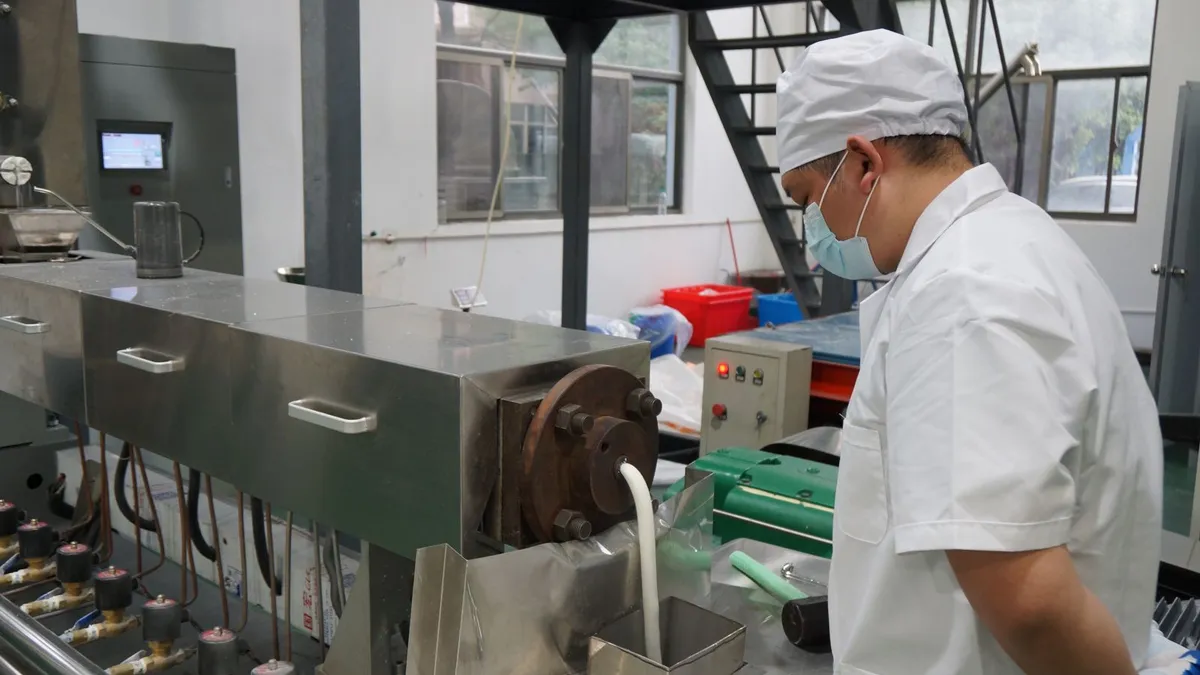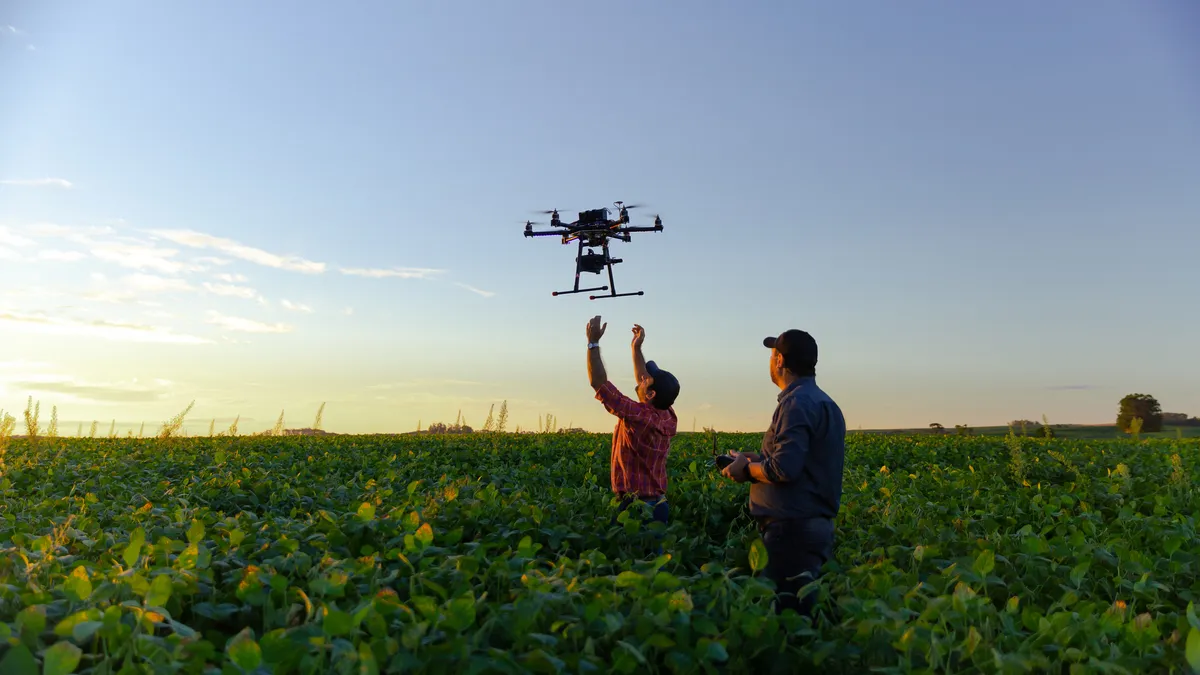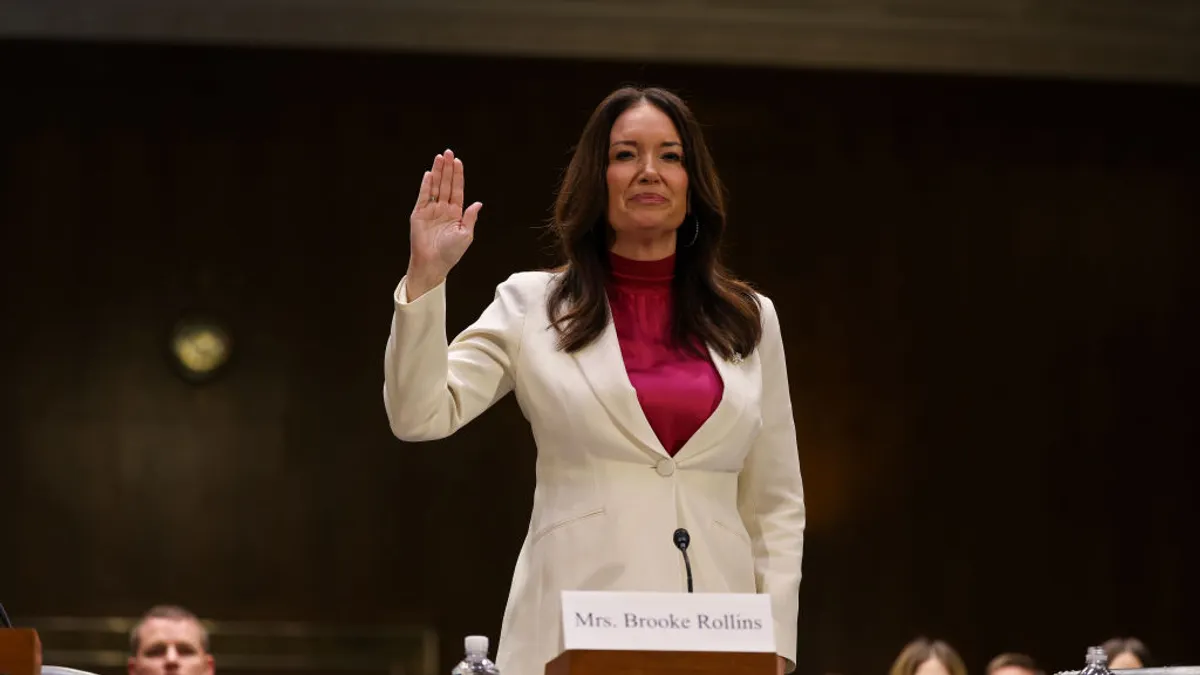Food was at the center of the table at COP28 as world leaders and major producers announced landmark agreements tackling agriculture's role in climate change.
Some of the world's largest food producers are taking new steps to disclose — and reduce — methane emissions, which are more potent than carbon dioxide. And for the first time at a U.N. climate summit, governments agreed to prioritize food and agriculture in their plans to lower emissions.
Here's a look at some of the major agreements and financial pledges made at COP28 focused on transforming food systems:
134 countries agree to include food in climate action plans
Nations encompassing some of the world’s largest food producers signed a declaration to transform agriculture and food systems as part of their plans to tackle climate change.
Pledging countries have agreed to work together to scale adaptation and resilience efforts for farmers, in addition to taking more action to transform production practices through addressing soil health, food waste and biodiversity loss. To meet those goals, signatories agreed to accelerate innovation and increase financing for agriculture-based climate solutions.
More than 25 global companies team to advance regenerative agriculture
Some of the world's largest companies are teaming up to significantly scale regenerative agriculture practices by 2030.
As part of the COP28 Action Agenda on Regenerative Landscapes, businesses including Danone, PepsiCo and Nestlé have agreed to advance regenerative agriculture practices on more 160 million hectares of land, or triple the size of France. The effort is expected to involve approximately 3.6 million farmers.
Other companies involved in the initiative include grain giants Archer-Daniels-Midland, Bunge and Cargill. Participants so far have invested $2 billion into regenerative projects, with another $2.2 billion committed.
Businesses have agreed to report and monitor the impact of their regenerative projects on a number of metrics such as soil health, greenhouse gas emissions, biodiversity, water and farmer livelihoods.
JBS joins effort to drive demand for sustainable farming
The world's largest meat processor will join more than 20 major food companies in leveraging their procurement power to drive demand for sustainably-produced farming products, part of an agreement reached with the United Arab Emirates and the World Economic Forum.
Members of the First Movers Coalition for Food aim to accelerate demand for low-carbon commodities by responsibly sourcing products. Coalition partners account for a combined revenue of $2.1 trillion, with members including Bayer, Cargill, Tyson, Danone and Nestlé.
"This will decrease the risks associated with required investments in low-emissions agri-food production, make it easier to expand to net-zero and nature-positive technologies, and help farmers adopt greener practices such as regenerative agriculture," said Manny Maceda, CEO of Bain & Company, which is supporting the coalition.
6 food giants to cut methane from dairy
Bel Group, Danone, General Mills, Kraft Heinz, Lactalis USA and Nestlé agreed to publicly disclose the methane emissions associated with dairy supply chains, part of a new alliance to tackle the potent greenhouse gas.
The companies, along with the Environmental Defense Fund, launched the Dairy Methane Action Alliance, which aims to create a new model for transparency and provide support for farmers. The businesses pledged to release an action plan by the end of 2024 to outline their plan to reduce methane emissions.
Separately, Danone announced a partnership with the Global Methane Hub to reduce methane emissions in the dairy supply chain, becoming the first corporate sponsor of the Enteric Fermentation R&D Accelerator.
Bezos Earth Fund, philanthropies invest in food
More than 16 philanthropies including Amazon founder Jeff Bezos' climate fund will place a greater focus and commitment to transforming food systems, according to a statement of action signed at COP28.
The Bezos Earth Fund and other groups will invest more in food security and sustainability to drive climate action in line with the Paris Agreement goals.
Philanthropic, public and private organizations mobilized $5 billion in collective funding to transform food systems as of Dec. 1, according to COP28 leadership. The money is expected to unlock long-term capital of $20 billion to advance climate and nature action.
Individual donations include $57 million in food-related grants from the Bezos Earth Fund to address deforestation and promote climate-smart agriculture. The Bill and Melinda Gates Foundation announced $200 million to work with the UAE and help smallholder farmers in sub-Saharan Africa and South Asia adapt to climate change.



















